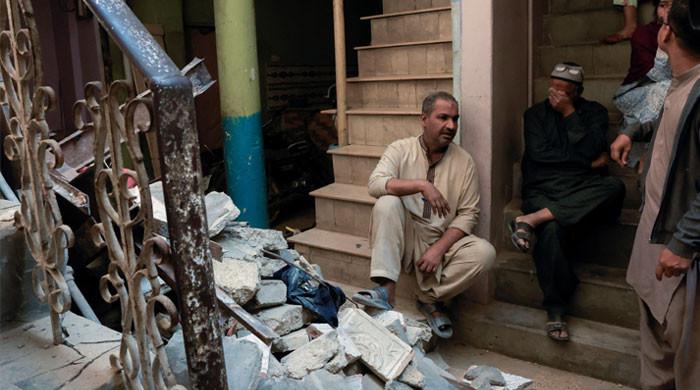Why cousin marriages on decline in Bradford's Pakistani community?
Recent study sees 46% decline in Bradford's Pakistanis marrying their cousins
November 18, 2023

Despite having a great health risk factor, cousin marriages in the Pakistani community — whether in the country or abroad — continue to prevail even today. However, the number of such unions is much lower than it was a decade or two ago.
A report by BBC stated that the instances of cousin marriages in Bradford's Pakistani community "have fallen sharply" in the last 10 years.
A study titled 'Born in Bradford' cited by the publication for the observation suggested higher educational attainment, new family dynamics and changes in immigration rules as possible reasons for the decline in cousin marriages.
Bradford resident Juwayriya Ahmed revealed a conversation with her children about how she met their father, who was her cousin.
"I was laughing at them. I said I didn't really meet him. My parents took me to Pakistan and my dad said you're going to marry this person. And I sort of knew who he was, but the first time I met him properly was at the wedding," BBC quoted the 52-year-old teacher.
"My kids said that was disgusting. And then they told me, 'Don't you dare make us do anything like this'," she added.
A ten-years-old study found that 60% of the babies in the Pakistani community had parents who were first or second cousins, while a recent follow-up study saw a 46% decline in that.
According to Neil Small, the professor of health research who is part of the Born in Bradford, a number of possible reasons for the decline in cousin marriages are being analysed in consultation with the community.
Among those explanations are:
- Awareness of the risk of congenital anomalies has increased
- Staying in education longer is influencing young people's choices
- Shifting family dynamics are changing conversations about marriage between parents and children
- Changes in immigration rules have made it harder for spouses to move to the UK
To support the last possible explanation, Bradford-born Ayesha said that her Pakistani husband couldn't move to the UK until three years since their marriage and by that time, their baby was two.
Besides that, Ayesha had to work long hours to reach a salary threshold introduced in 2012 for anyone wanting to bring a spouse from outside Europe to live in the country.
"I don't think my children will marry cousins. They will lose that connection with Pakistan and I feel sad about that," she said.











